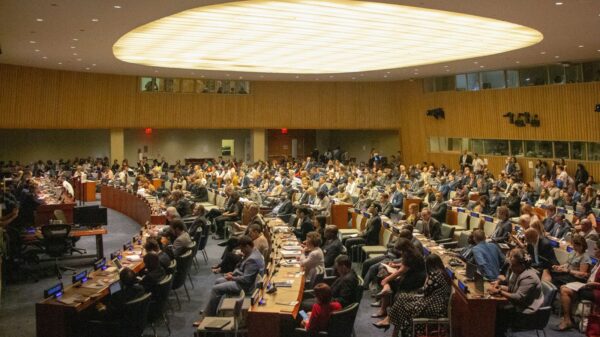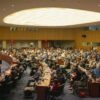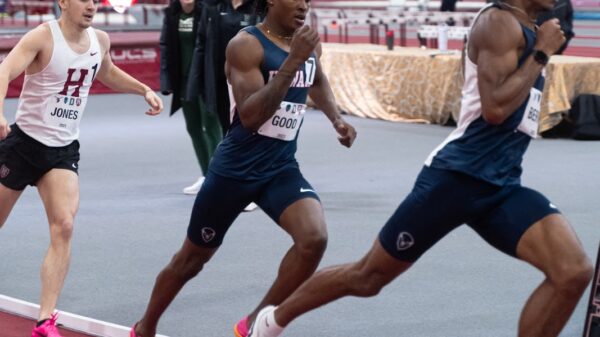The aftermath of the June 27 traffic stop-turned-killing of Nahel Merzouk, 17, in Nanterre, France led to weeks of nation-wide protests and social unrest, and were met by an overtly militarized response by French authorities. As a result, citizens of France are calling attention to the nation’s current and historical behavior of anti-Black and anti-African state oppression.
Citizens around France shared their perspective with The Hilltop regarding the protests after Nahel’s death, the connection between the government’s militarized actions and the nation’s colonial past, as well as the history of policing in France.
In the aftermath of Nahel’s tragic death, members of the French Republic are calling attention to years of accusations of systemic anti-Black racism, citing countless incidents of police brutality and police-involved killings.
The last time the nation experienced protests of this magnitude was 18 years ago. In 2005, in the Paris suburb of Clichy-sous-Bois, while returning home from a soccer match 15-year-old Bouna Traore, and 17-year-old Zyed Benna, were electrocuted and killed in an electrical substation while avoiding a police identity check.
The six weeks since Nahel’s unlawful death have been filled with acts of international solidarity. French singer Slimane exclaimed “racism is no longer hidden” in France, and the human rights organization Amnesty International declared that the French government should “prioritize the reform of rules governing the use of firearms and lethal force”.
“After this tragic murder, Nanterre expressed its rage and sadness, and Ms. Mounie, Nahel’s mother, was supported by people from various communities. We have seen a lot of support through social media,” Audrey M., an activist and independent photojournalist who was on the scene in Nanterre, said in an interview with The Hilltop.
“After the march, I received messages from Germany, the U.S., Lebanon, Ireland, Spain, Italy, Greece and Iran to show support, and funds are being raised,” Audrey continued.
Unexpectedly, the wife of Florian Menesplier, the officer who killed Nahel, was awarded €1.6 million after a GoFundMe was created on the family’s behalf “to help” because Menesplier’s “salary was to be suspended.”
The situation in France is riddled with a racial undertone and political implications as the Menesplier fund was created by right-wing politician Jean Messiha, who previously worked with far-right presidential candidates Marine Le Pen and Eric Zemmour, and raised more than Nahel’s fund.
Members of the French Republic have called attention to former Prime Minister Bernard Cazeneuve’s 2017 public security law as prompting cops to use lethal force.
“Deaths like Nahel’s are multiple because of a law voted in 2017 which authorizes the police to shoot when a vehicle does not want to stop, but it must consist of a threat for public safety,” author, freelance journalist and feminist activist Nesrine Slaoui said to The Hilltop.
Since 2022, 15 people have been killed by police during traffic stops in France, and throughout the last five decades, children and teenagers of Arab or African descent have died attempting to evade police checks, including Mohamed Diab (Versailles, 1972); Lahouari Ben Mohamed (Marseille, 1980); Malik Oussekine (Paris, 1986); and Youssef Khaïf (Mantes-la-Jolie, 1991).
In early June, a young man by the name of Monzamba died on a motorcycle in Sarcelles, after being chased by police. In June 2022, 21-year-old Rayana died in the passenger side of a vehicle after being shot by French police who ordered the car’s driver to stop.
“The enduring rage resonating across France is rooted in years of injustice and inequality. It arises from the absence of hope, relentless humiliation, economic and social disparities, devaluation of culture, and the distress endured by Arab-descendant and North African communities.” – Balogun Ola-Davies, Champs-sur-Marne, France
After three policemen on bicycles knocked on the driver’s window because [the driver] was not wearing a seatbelt, the driver informed his three passengers that he didn’t have a license and briefly attempted to avoid the officers before stopping the vehicle.
As the driver accelerated, the police officers fired nine rounds into a car with four passengers in central Paris during the attempted traffic stop. According to a surviving passenger:
“I saw two policemen standing at the front windows. Everything went very quickly. I didn’t even hear ‘Get out of the car’ or ‘Hands up.’… The driver didn’t even have time to take his hands off the wheel.”
“This was not the case for Alhoussein, killed a few days before Nahel, or Rayana, killed almost a year before in the same circumstances,” Slaoui, who is of Moroccan descent and has written two books about being an Arab woman in France, told The Hilltop.
Fifteen days prior to Nahel’s death, Alhoussein Camara, a 19-year-old Guinean was shot on his way to work in western France after allegedly refusing to comply with a police traffic stop.
There have been numerous interpretations of the situation in France by various media platforms, with some outlets mischaracterizing peaceful protestors as rioters.
“It is disheartening to witness tear gas grenades launched at a crowd comprising young individuals, grandmothers and grieving families who have already suffered an unimaginable loss,” Balogun Ola-Davies, an ‘Afropean’ architect and illustrator of Nigerian and Sierra Leonean descent, told The Hilltop.
Ola-Davies, who resides in Champs-sur-Marne, the suburbs east of Paris, stressed that when actions carried out by Black and Arab communities are labeled as “riots” it intentionally carries a negative undertone.
He mentioned this amplifies the perception of violence and disorder, as opposed to protests led by predominantly white individuals, such as Gilet Jaunes, protestors who have demonstrated in major French cities every Saturday since Nov. 17, 2018.
Audrey, Slaoui and Ola-Davies all mentioned the recent protests are unique due to the weariness and anger about several racially motivated police crimes and because many protesters are under 18 years-old.
“The media unjustly and deliberately labeled the gathering as a ‘riot,’ instead of acknowledging these events as peaceful demonstrations, which exhibits a biased treatment towards participants in collective movements based on their ethnic and social backgrounds,” Ola-Davies, who is also a social activist and member of the “Verité et Justice Pour Gaye” committee, said.
Verité et Justice Pour Gaye is a human rights group fighting for the recognition of the police’s fault regarding the murder of Gaye Camara, a 26-year old Black man killed by police firearm while driving his car on Jan. 16, 2018, during a police intervention.
Nahel’s death by law enforcement is the latest in a trend of recent and historic police transgressions and acts of violence towards French civilians of African and Arab descent, who are disproportionately surveilled due to the composition of their communities.
Mathieu Rigouste, an independent social science researcher and author of The Enemy Within: A Colonial and Military Genealogy of Security Directives in Contemporary France, shared information on the history of police oppression in working-class neighborhoods in France via tweet.
“’Quartiers populaires’ (working-class neighborhoods), are structurally under-resourced areas where most people from African communities live. They are associated with ‘ghettos’ due state policies,” Ola-Davies told The Hilltop.
“These communities are characterized by a distinct system of police management, and landlords adopting a ‘logic of concentration’ that distributes the population in buildings according to skin color and nationality,” he continued.
In the nation internationally known for the 1789 French Revolution and creation of the Declaration of the Rights of Man and the Citizen, the relationship between law enforcement and members of historically marginalized communities reveals a duality.
“The protests are the results of a process connected to systemic racism and the way of operating of the French police that mainly targets people of color, especially young men,” Ola-Davies said.
In addition to police killings, throughout the last month law enforcement across France were cited for numerous accounts of cruelty and militarized tactics toward non-protesting citizens as well as protestors, such as using ‘bean bags’ and other military-grade ‘anti-riot’ weapons.
During the night of June 28-29 protests, Nathaniel, 19, was blinded after receiving a projectile to the face while returning home from a birthday party in Montreuil, France.
On June 29-30, a young man was injured by a LBD (defense ball launcher) shot by the police in Nanterre, following the death of Nahel. The man suffered head trauma and was hospitalized for approximately 20 days.
After attending a march for Nahel, a young man called Virgil who is a former member of the French army, lost an eye after being targeted by French authorities. On June 30, a 22-year-old man was shot in the eye by French police during an urban revolt and injured. He has undergone two surgeries, and his lawyer filed a complaint for aggravated violence.
“In 2005, the death of Zyed and Bouna, who died in an electrical depot while being chased by police, already provoked urban revolts which lasted more than three weeks. Almost 20 years later, the situation is different, especially with social networks that allow rapid mobilization and the rapid spread of images.” – Nesrine Slaoui, Nanterre, France
During the night of July 1-2 protests, Jalil, a non-protestor, now 16, was hit by LBD fire in a city about 15 kilometers south of Paris, and now struggles with sight in his right eye.
Rigouste discussed the philosophy of French police behavior via tweet, “In its ideology and practices, the French police has domesticated the counter-insurgency doctrine created in the Algerian war and is redeploying it to ensure the control and repression in colonized territories, prisons, segregated neighborhoods, struggles and social revolts.”
Audrey believes France’s police violence against Arab and African minorities has been well known since the 1954-62 Algerian War of Independence, and recent public policy changes have only incited police violence toward civilians.
“There are many cases of murders against minorities since then and the state violence against minorities is normalized and systemic. Even the United Nations has warned the French government and asked them to reform its police due to concerns of racism,” Audrey told The Hilltop.
“The 2017 public security law [seemingly] constituted a true license to kill and post-colonial migrants have been socially and racially discriminated against, so if you are Arab or Black in France, your chance to be killed by the police is higher,” she added.
Although the country has a specific authority, the Inspection Générale de la Police Nationale (IGPN), that investigates police transgressions and occurrences when French law enforcement officers violate the law, injure or kill a civilian, some are suspicious of the IGPN.
“There were two policemen, but only one is in custody and charged for intentional homicide while the second is free. We know that the investigating agency of the police, the IGPN, is not an independent body and always tends to find circumstances to exonerate police officers,” Slaoui told The Hilltop.
Despite a video, which has now gone viral on the internet, showing that Nahel’s vehicle was stationary and the policemen were not in danger during the traffic stop, the French police claim that Nahel, “who had first turned off the engine, restarted the vehicle, then left. [And] it is in this context that the policeman uses his firearm,” said a French police official.
Members of the French community, such as Audrey, who attended protests across France in June and July, uphold that the account of Nahel’s death being promoted by police is obviously false.
“The crime has been filmed and it’s concrete proof of what happened on the morning of June 27. We can clearly hear the policeman yell: ‘I’ll shoot you in the head’ and the second officer yell ‘shoot him’ twice, before the officer actually shoots Nahel,” Audrey told The Hilltop.
Authorities and institutions in France have a history of denying anti-Black racism and leaving cases unaddressed or evoking ideological differences to justify the deaths of people of African and Arab descent.
Since Nahel’s death, French society has been increasingly divided between a group that demands more order and a militarized state response by police, and those who believe racism is prevalent in a pattern of police killings.
On July 4, during the French National Assembly, Antoine Leaumont, a member of La France Insoumise (the Rebellious France Party), addressed the lack of institutional accountability regarding racism in policing. Leaumont drew attention to the relationship between right-wing parties and unions in France, such as Alliance Police Nationale, the largest police union, and the National Union of Autonomous Trade Unions (UNSA).
“It should be noted that Arab and African minorities in France have often been victims of discrimination and violence from law enforcement. Black people in France are often confronted with prejudices and stereotypes that prevent them from having the same opportunities as white people.” – Anonymous, Nanterre, France
“The police unions ‘Alliance’ and ‘UNSA’ have threatened executive power…When will you remind ‘Alliance’ that the police are not there to give orders but to serve and obey?” Leaumont said.
While the French police reject accusations of violence, protestors, journalists and experts have cited the repeated use of militarized tactics, weapons and preventative measures. The IGPN is currently investigating approximately 30 cases related to suspicions of violence committed by the police, nine of which developed after shootings during protests.
“You are afraid to stop the shameful fundraising in favor of the policeman who murdered Nahel, and are afraid the police will turn against you…This fear prevents you from acting when the United Nations criticizes racism in our police, and you deny this racism,” Leaumont added.
Last month, the UN Committee on the Elimination of Racial Discrimination (CERD), declared its concerns and made a number of recommendations regarding racial profiling and excessive use of force by French law enforcement officials.
In response the French authorities reaffirmed that “any accusation of racism or systemic discrimination by law enforcement officers in France is unfounded.”
The continued trend of institutional denial and lack of accountability can be attributed to a psychological ploy used to create legal conditions where victims must prove that racist incidents, both overt and institutional, have transpired.
“Now, the IGPN report says that the policeman told Nahel to ‘shut down the engine and put your hands on your head’ before shooting, which is false,” Audrey told The Hilltop.
During his testimony in French courts, one of the passengers present during Nahel’s shooting also verified the police account was false. Nahel was in fact hit with the butt of the gun at least three times, and during the third hit, accelerated.
After overcoming his state of shock, the 14-year-old passenger sitting next to Nahel in the car confirmed that Nahel’s last words were: “Say goodbye to Mama and grandma. He shot me, he’s crazy.”
“The state violence against minorities in France is normalized and systematic. Even the UN has warned France several times asking the government to reform its police,” Audrey expressed.
In Nahel’s case, the institutional contradictions are abundant, as Laurent-Franck Liénard, the lawyer for Menesplier, claimed the officer “did not want to kill” and that he asks for “forgiveness from the family” during a testimony.
Yet, Liénard offered another account of Menesplier as the protests ensued across France, saying his client mentioned “thoughts of suicide” because “his profession has been attacked for two to three weeks”, and [as an officer of the law] “he is convinced he acted right and acts right every day.”
According to Liénard, when his client asked, “how do I get out of this?”, the attorney suggested changing jobs as there are other professions, to which Menesplier replied, “This is who I am, and I live for my work. I want to be a police officer. I want to go arrest people. I want to be able to strangle them when they struggle.”
As members of French society continue to cope with the heinous actions of law enforcement, Ola-Davies shared his perspective with The Hilltop.
“Victor Hugo’s powerful statement from the 1851 National Assembly, ‘Police partout, justice nulle part’ (Police everywhere, justice nowhere) rings true even today,” said Ola-Davies.
“This pervasive lack of justice compelled people, particularly those from marginalized communities, to take to the streets,” he added.
Copy edited by Jasper Smith













